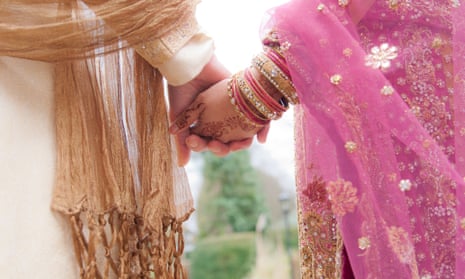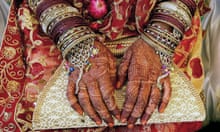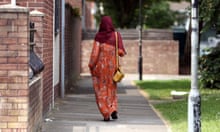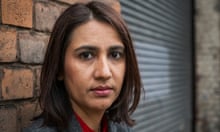Muslim couples should undergo a civil marriage as well as a religious ceremony to give women protection under the law, an independent review of sharia councils has recommended.
A report following the 18-month review called for an awareness campaign informing Muslim women of their legal rights, and said sharia councils should be subject to regulation with a code of conduct.
However, the Home Office said it would not adopt the recommendation on regulation.
The closure of sharia councils was “not a viable option”, the report concluded.
The review, led by Prof Mona Siddiqui, presented its findings to parliament on Thursday. It was launched by Theresa May in 2016 when she was home secretary to examine whether sharia law was being misused or applied in a way that was incompatible with the rule of law in the UK.
The review said nearly all those using sharia councils were women, and in the vast majority of cases, they were seeking an Islamic divorce. As a “significant number” of Muslim couples do not register their marriages under civil law, “some Muslim women have no option of obtaining a civil divorce”.
Muslim women’s groups have accused the councils of being discriminatory and regressive. Some councils pressure women to stay in abusive marriages and ignore their rights under British legal systems, they allege.
The report’s key recommendation is that Muslim couples should be legally required to civilly register their marriage before or at the same time as their Islamic ceremony.
This would ensure “a greater number of women will have the full protection afforded to them in family law and the right to a civil divorce, lessening the need to attend and simplifying the decision process of sharia councils”.
It also said “cultural change is required within Muslim communities so that communities acknowledge women’s rights in civil law, especially in areas of marriage and divorce”.
The report recommended awareness campaigns and educational programmes to inform women of their rights and responsibilities.
A majority of the review panel backed a proposal for a self-regulatory body, consisting of sharia council panel members and specialists in family law, which would construct and implement a code of practice for sharia councils. One member of the review panel dissented from this recommendation.
In a statement, the Home Office said: “We will not be taking forward the review’s recommendation to regulate sharia councils. Sharia law has no jurisdiction in the UK and we would not facilitate or endorse regulation, which could present councils as an alternative to UK laws.
“In Britain, we have a long tradition of freedom of worship and religious tolerance, where many people of different faiths follow religious codes and practices, and benefit from their guidance. The government has no intention of changing this position.”
The Home Office said it would carefully consider the review’s findings and other recommendations.
Estimates of the number of sharia councils in England and Wales range from 30 to 85, the report said, adding that, to the best of its knowledge, there were none in Scotland.
It defined sharia as “an all-encompassing term which includes not only law in the western sense of the word, but religious observances such as fasting and prayer, ritual practices such as halal slaughter, and worship in general”.
Sharia councils have no legal status and no legally binding authority under civil law, the report said. If decisions are made that are inconsistent with UK legislation, the law will prevail.
“Sharia councils will be acting illegally should they seek to exclude domestic law. Although they claim no binding legal authority, they do in fact act in a decision-making capacity when dealing with Islamic divorce,” it said.
Siddiqui said the review’s findings were based on evidence from an array of individuals and organisations.
In her foreword to the report, she said sharia had been “regarded by some as keeping many Muslims isolated, entrenched and with little social and psychological stake in wider British citizenship and civic life”.
She went on: “During the course of the review, it soon emerged that religion, culture and gender relations are inextricably intertwined, especially when it comes to family matters and personal law.”
The panel included family law experts, a retired high court judge and two imams.








